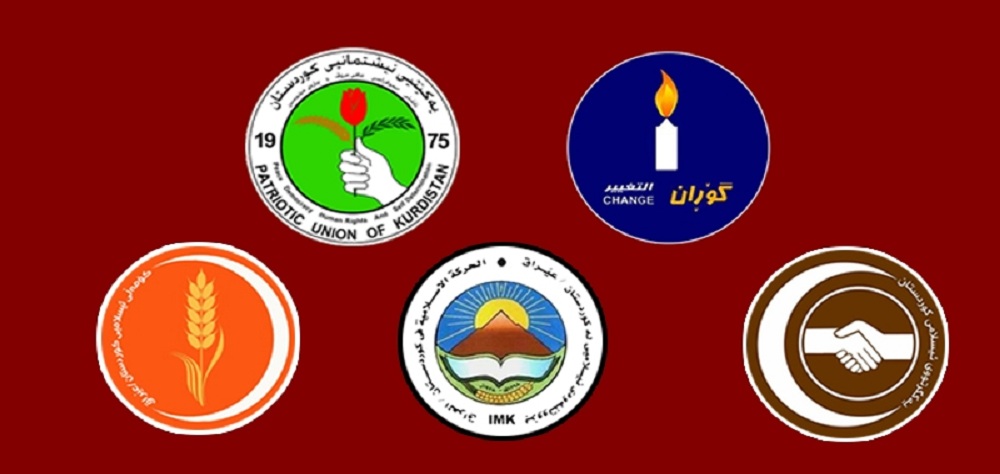Alwaght- The Iraqi Kurdistan’s politics have stepped into a new chapter following the September 25 2017 secession referendum whose consequences marked the defeat of efforts of Masoud Barzani to separate the semi-autonomous Kurdish region in the north from Iraq.
Now the questions are revolving around how the Kurds of Iraq will secure their place in the country’s political stage and what political inclinations they will have.
Since 2005, the year that Iraq formed its first government after fall of the former dictator Saddam Hussein, the Iraqi Kurds have played a very effective role in the country’s politics. They often participated in the cabinet with several ministers, and in post-Saddam Iraq, the Kurds held the post of the president, though a ceremonial position according to the new constriction. But since the secession plebiscite, a theory put doubt on the possibility of easy-like-before Kurdish partnership with the other Iraqi political factions, adding that the Iraqi Arab politicians will no longer entertain the idea that the Kurds be allowed to engage in the political process as active as in the past.
Over the past week, the Kurdish region’s political environment became a theater for hot debate on the fashion of the Kurdish participation in the upcoming parliamentary election, scheduled for May. Before and after the referendum, two political factions in the Kurdish region came to existence, to a large extent making the political atmosphere shrouded in mystery: the Coalition for Democracy and Justice (CDJ), led by Barham Salih, and the New Generation, founded by Shaswar Abdulwahid Qadir, the chairman of “No for Now Movement” which was formed to raise an antipathetic voice against last year’s separation vote. Such a situation gives rise to a question: With the Kurdish region’s economic crisis unfolding and with the division among the Kurdish parties, how will be the Kurdish political order in the May election? Three scenarios are expected:
1. Kurdish parties form an inclusive own alliance
The first scenario will be the participation of all Kurdish political factions within a unified bloc, under the title of Kurdistan Coalition. Such an alliance showed itself in 2005 for the first time, when the Council of Representatives, or simply the parliament, was first formed through election. The Kurdistan Democratic Party (KDP), led by Masoud Barzani, Kurdistan Islamic Union (KIU), led by Salaheddine Bahaadeddin, and factions of the Patriotic Union of Kurdistan (PUK), led by Kosrat Rasul Ali, have called for such a participation in the election. But such a coalition is unlikely to see the light amid deep divides between the Kurdish parties and objection to such a bloc by the opposition body comprised of a majority of the PUK, Gorran (Change) Movement, and Kurdistan Islamic Group (KIG). Inn the eyes of the opposition body, such a scenario will mean acceding to the KDP domination.
2. Sulaymaniyah coalition vs Erbil coalition
Another scenario is also likely to come into existence according to the Kurdish political regionalism. For a long time, the Kurds of Sulaymaniyah and Erbil have been living in a state of confrontation of each other. In the new conditions of the region’s political scene, such a confrontation is not unlikely. Odds are that the PUK, Gorran Movement, KIG, CDJ, and New Generation coalesce within a unified list in the face of KDP, KIU, and Kurdistan Socialist Democratic Party (KSDP). Recently, the Gorran movement, KIG, and CDJ formed a coalition, dubbed Nishtiman Coalition, to race for seats in the upcoming election. Such a coalition might be the initial signal of likeliness of such a scenario. But the Sulaymaniyah-based parties are themselves divided internally. Gorran Movement and the PUK are far away from each other when it comes to political views, something making it difficult for them to unite under a single bloc. The same disunity exists on the opposite side. Despite recent closeness to the KDP, KUP is not poised to form a coalition with the KDP. So, it can be noted that on the Erbil side, too, such a scenario is unlikely to be formed.
3. Kurdish parties spread around Maliki and Al-Abadi
Another scenario is linked to the race for premier post between the former prime minister of Iraq Nouri al-Maliki and the incumbent premier Haider al-Abadi. It is likely that the Kurds will regulate their political stances to be in line with each of the two political rivals. The Kurds might take part independently in the election, but when they get into the parliament, they will build coalitions with each of these two figures.
Rudaw news channel, a KDP-run news outlet, in mid-September 2017 invited al-Maliki for an interview. The analysts argue that the interview carried an indirect warning to al-Abadi and other Kurdish political factions telling them that if pressures on the party continue, it will ally with al-Maliki in May election.
On the other side, a Kurdish delegation visited Baghdad last week to meet with al-Abadi. The delegation included the PUK and the CDJ, and New Generation. Following the visit, Barham Salih asserted that he supports al-Abadi’s stay in the post. It appears that competition at the Kurdish home among the various factions gives this scenario a bigger chance of realization.



























